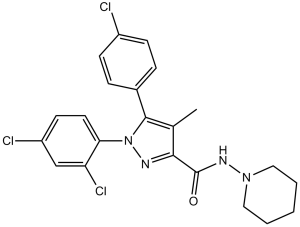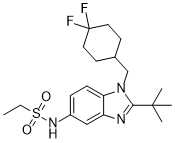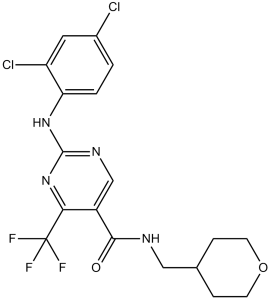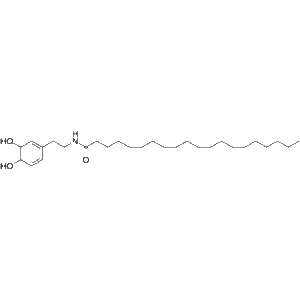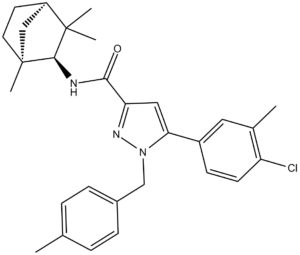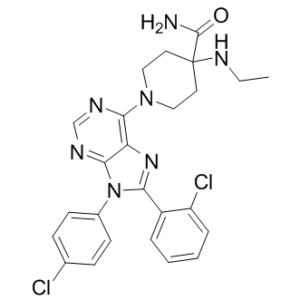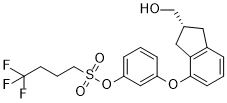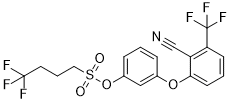Rimonabant (formerly known as SR-141716; A-281; A281; SR 141716A; Acomplia; Zimulti), an anorectic antiobesity drug once used in EU but withdrawn from market due to serious psychiatric side effects, is a novel, potent and selective antagonist (inverse agonist) of cannabinoid CB1 receptor.
AZD1940 is a novel, potent and peripherally acting cannabinoid CB(1) /CB(2) receptor agonist with effects on capsaicin-induced pain and hyperalgesia.
GW842166X (GW-842166X; GW842166; GW 842166X) is a novel, potent and highly selective agonist of cannabinoid receptor CB2 receptor with potential anti-inflammatory activity.
N-Arachidonyldopamine is an endogenous CB1 receptor agonist (Ki = 250 nM) and a TRPV1 agonist (EC50 = 50 nM).
SR144528 (SR-144528; SR 144528) is a novel and potent cannabinoid (CB2) receptor or antagonist or inverse agonist with Ki of 0.6 nM and 400 nM against CB2 and CB1 receptors, respectively.
Linoleylethanolamide is a novel and potent endocannabinoid agent that acts by binding to TRPV1 (Ki = 5.60 uM), increasing ERK phosphorylation and AP-1 dependent transcription in CB-receptor in an independent manner.
Anandamide is a novel and potent fatty acid neurotransmitter.
Otenabant free base (also known as CP-945,598) is a novel, potent and highly selective cannabinoid receptor CB1 antagonist with Ki of 0.7 nM, it exhibits >10,000-fold greater selectivity against human CB2 receptor.
BAY-38-7271 is novel, potent, highly selective cannabinoid receptor agonist with the potential for the treatment of traumatic brain injury.
Bay 59-3074 is a novel, potent, orally active and selective cannabinoid CB1/CB2 receptor partial agonist with Ki values of 48.3 and 45.5 nM at human CB1 and CB2 receptors respectively.
